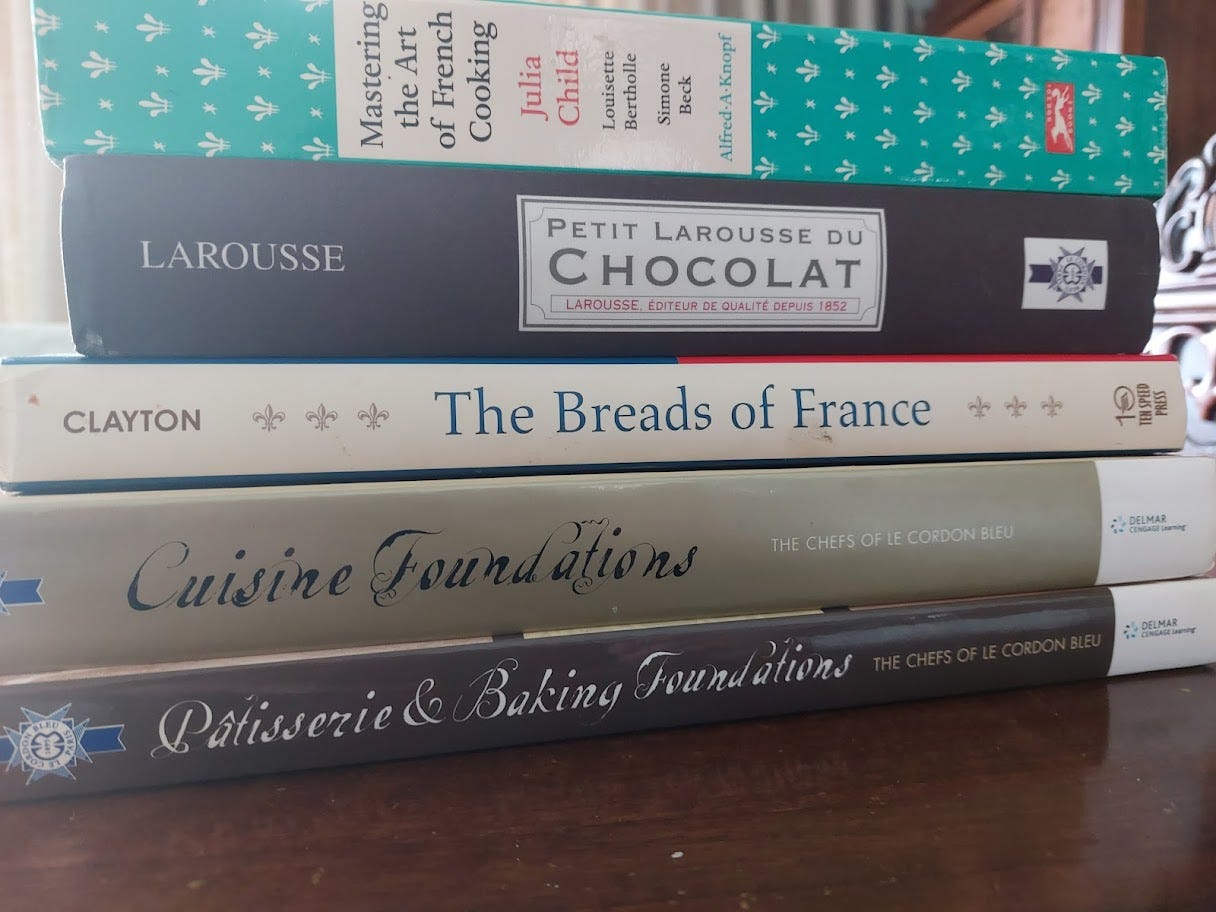The French have an expression that “Chaque cuisinier a sa sauce”, meaning “Each cook has their sauce”. As with many proverbs it likely has more than one meaning, but on the face of things it’s pretty simple: two cooks making the same recipe will produce a different result.
But when it comes to French cuisine, there’s a common language of what’s what. While the hand of the chef will adjust the finished product, the fundamentals are understood. And the fundamentals are not simply understood, but are codified.
What we think of as “French cuisine” has its origins in medieval times but it was when a 17th century chef named François Pierre de la Varenne published Le Cuisinier François in 1651 that French cooking was taken to a new level: it was written down. It contained early versions of recipes like béchamel and hollandaise, suggested roux instead of bread for thickening, and shunned the heavily spiced and sweetened dishes from medieval banquets for fresher seasonal ingredients. Butter was favoured over lard, and recipes included those for turkey and other ingredients from the New World. The book was translated into English in 1653, spreading its influence well beyond the borders of France.
The next several centuries brought other developments: more new ingredients and tastes from colonial expansion, more documentation of the cuisine by chefs like François Massialot, and the break up of many of the trade guilds after the French Revolution. But it’s through the work of one particular chef where things begin to sound familiar to cooks today.
Marie-Antoine Carême, born just five years before the French Revolution, was best known in his lifetime for his work as a cutting-edge pastry chef. But it his systemization of French cuisine that is his most important legacy. If you’ve heard of the Mother Sauces you have at least some familiarity with his work. More than 70 years later Auguste Escoffier built upon the works of Carême, refining not only the recipes but the systems and professional standards of the French kitchen. Apparently we have these guys to blame thank for the famous toque.
This is all interesting, isn’t it? But what does this mean for the home cook? With a world of cuisines at your fingertips, why study French cuisine?
It’s simple: French cuisine prepares you for any ingredient and any recipe. Whether you’re making a Southern sawmill gravy or tadka for an Indian dish you’ll see something familiar from French cuisine.
A familiarity with French cuisine allows you to look at a recipe and see past the instructions to identify the technique. A recipe for Bò Kho is a braise not unlike a Boeuf Bourguignon, just with different aromatics. Indonesian rendang is a braise too, just done in reverse. If you can make crepes you can make roti jala. The French didn’t invent escabèche but they certainly use it for mussels and other seafood, and if you know how that works you’ve got dishes from Mexico, Jamaica, the Philippines, and many others at your fingertips. Cong yu bing (Chinese scallion pancakes) are a laminated dough - not quite like puff pastry, but you get the general idea.
French cuisine educates you to the properties and possibilities of an ingredient, even one that’s not familiar. Should I peel that? Should I bloom that spice in hot oil? Can I stir fry all those ingredients together or does one need longer cooking that the others? Start that in a hot or cold pan? If you know what to do with a radish you can probably figure out how to handle daikon. If you know why you salt eggplant you can make an educated guess as to how to handle karela. You may not always make something “authentic” without a recipe, but you can likely make something edible.
And having that familiarity with the techniques and systems of French cuisine allows you to turn your attention and curiosity to the true differences. When I say different I don’t in any way suggest “bad” or “wrong” but differences of ingredients and techniques that make a dish unique. If you make gelato you can explore how and where it diverges from crème anglaise-based ice cream. If you understand how eggs and butter affect the texture of a brioche dough, you can explore how Asian recipes use tangzhong to affect texture of baked goods. If you have a systematic knowledge of something you can figure out where something fits, or why it doesn’t fit at all.
All of this is to say that even if you aren’t interested in poached trout coved in aspic or baking your own croissants you can learn a great deal by studying French cuisine. It’s as comprehensive and systemic as a study of an area like cooking can be and gives you the fundamental skills to give something a try or to make an educated guess. And even if French cuisine doesn’t have all the answers, it allows you to ask the right questions. How does this work? Why does this work? Is there another way? It’s in asking these questions that you too will find your sauce.



